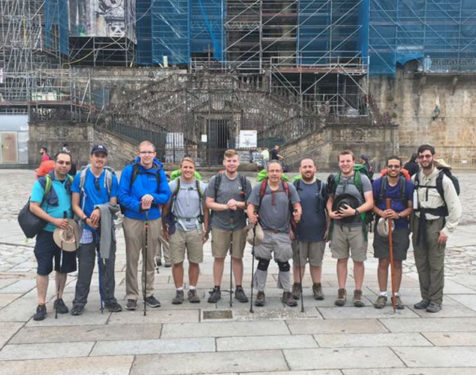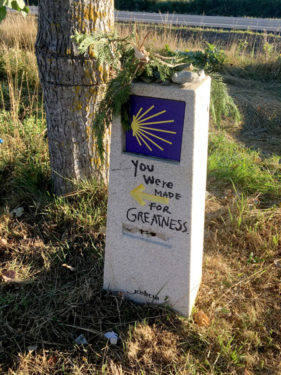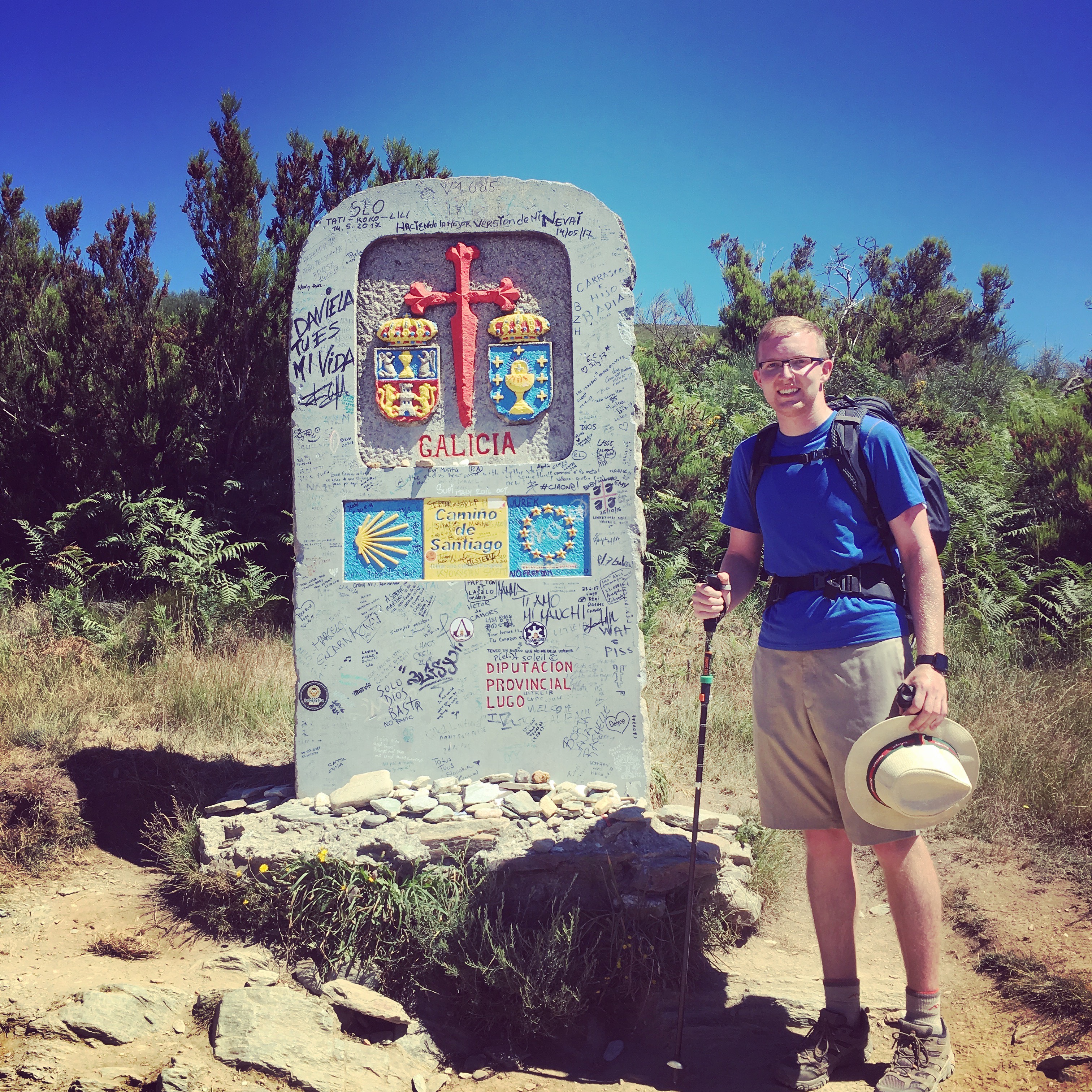By Brendon J. Harfmann

If you have ever seen “The Way,” the 2010 film starring Martin Sheen, then you’re familiar with the traditional pilgrimage known as El Camino de Santiago. It has routes beginning in many different cities, and all ending in Santiago de Compostela, Spain.
This summer, I made a pilgrimage to the Shrine of Our Lady of Fatima in Portugal along with eight of my brother seminarians and one priest faculty member from St. Joseph’s Seminary in Dunwoodie. We spent nine days – or just about 130 miles – on El Camino in Spain, walking the traditional Camino Frances route from Ponferrada to Santiago de Compostela.
Along the way, we ran into priests and seminarians from other parts of the United States whom we knew. We also walked alongside complete strangers, some of whom were Catholic, others Protestant and some others who may believe nothing at all. I grew closer to my brother seminarians, and had the chance to get to know other pilgrims who journeyed with us.
Just like in the movie, each person begins the Camino for one reason or another, and may or may not finish with the same intention, and that’s fine because the encounter with God on the Camino changes us.
Pilgrims understand that they will be tested, not only physically, but also mentally and spiritually as well. You may earn a blister or two from the grueling hills and rough terrain, or begin to question how far the next water station is, or what may be around the next bend.
 On the really tough days, you might even begin to question where God is in it all, but reaching Santiago de Compostela, witnessing the flying botafumeiro (or large thurible with incense) in the Cathedral of Santiago and praying in front of the remains of St. James make the pain and exhaustion worth it.
On the really tough days, you might even begin to question where God is in it all, but reaching Santiago de Compostela, witnessing the flying botafumeiro (or large thurible with incense) in the Cathedral of Santiago and praying in front of the remains of St. James make the pain and exhaustion worth it.
Felt God’s Presence
As I approached the peak of one of the tallest hills, I found myself alone. I was overlooking the fields, filled with crops and cattle, the rolling hills in the distance and felt the cool breeze after climbing the hill under the scorching heat. It was there where I felt God’s presence the most.
Being a witness to the beauty of the earth around me, and recognizing that I could not continue on my own without the help of God, I was inspired to pray and spent several minutes in deep meditation of where I am going in life.
Those who walk the Camino recognize that God is on the Camino, and God is the Camino and my time with God on that hill inspired me to keep going. Sure, the backpack didn’t get lighter, and the pain didn’t cease, but my spirits were high and I was determined to finish strong.
I carried with me the intentions of parishioners from St. Michael’s Church in Sunset Park, where I had been assigned to serve this summer, as well as the names of the countless people who continue to pray for me, and for all of us seminarians.

Overwhelming Support
This pilgrimage would not have been made possible without the overwhelming support from family, friends and parishioners who supported us in prayer and also through a GoFundMe page, which was utilized to raise the necessary funds for airfare and housing in the albergues (or hostels). We must continue to pray for each other, and I beg for continued prayers for seminarians.
Bishop Nicholas DiMarzio called the diocese into this Year of Vocations, and as I continue to discern my own vocation to the diocesan priesthood, I found myself entering the Spanish city of Santiago de Compostela with my brother seminarians and our spiritual director on Aug. 4, the memorial of St. John Vianney, patron saint of parish priests.
In this year when young people will be called to put aside being comfortable and recognize God’s will in their lives, I felt called to lay aside comfort and walk the Camino. What I experienced is something I will never forget.
And like every spiritual encounter, it didn’t stop when I entered Santiago; I have to do something with it. I wanted to walk the Way of St. James as another opportunity to discern the will of God in my life, and I have returned home spiritually refreshed, even if I am exhausted physically.
People of Conviction
When we set off on our journey, we recognized that there was a certain amount of conviction needed for the task ahead of us. We knew that it would bring us out of our comfort zones. If we wanted to complete the Camino, we had to become uncomfortable, and that stuck with me. We cannot be a people of conviction if we are not willing to be uncomfortable.
Pope Benedict XVI said that, “the world promises you comfort, but you were not made for comfort. You were made for greatness.”
Not everyone will be able to experience the Camino in their lifetimes. But we can all ask ourselves this question: Where can I encounter Christ today?
Harfmann, a parishioner of St. Matthias, Ridgewood, and seminarian for the Diocese of Brooklyn, begins his second year of theology studies this September at St. Joseph Seminary, Dunwoodie.
